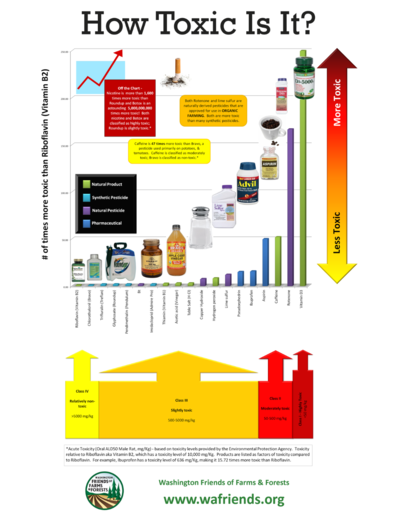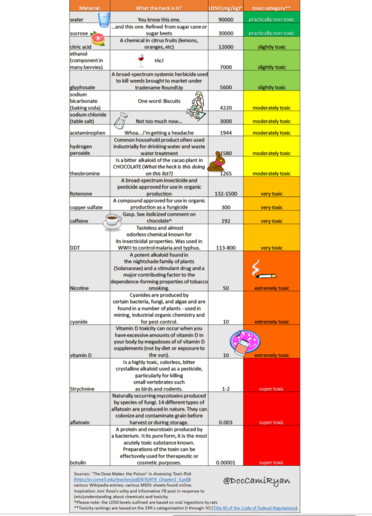You should upgrade or use an alternative browser.
- Thread starter big tee
- Start date
Billy Shafer
Well-known Member
flying belgian
Well-known Member
Traditional Farmer
Well-known Member
- Location
- Virginia
Traditional Farmer
Well-known Member
- Location
- Virginia
Traditional Farmer
Well-known Member
- Location
- Virginia
you are not Organic Certified(LOL)
Traditional Farmer
Well-known Member
- Location
- Virginia
groups now certifying farms as organic with a lot of testing and better records.Plus there needs to be stiffer penalties for fraud and abuses.Of course where there is money to be made
there will be people gaming the system.As many law as the SEC has about stocks look how long Bernie Madoff was able to defraud investors.
LIke was related in another post just because there are bank robbers doesn't mean the bank or depositers (customers) are at fault.
grandpa Love
Well-known Member
Traditional Farmer
Well-known Member
- Location
- Virginia
Traditional Farmer
Well-known Member
- Location
- Virginia
Oatmeal? Nothing? Don't Care? I'd think the least that could be done is to label Oatmeal like cigarettes with something like "Warning Contains the Weed Killer Roundup". Now that would be the right and honest thing to do.And if like you're going to say its still safe to eat then put the FACTS on the box and let consumers decide if they agree.
JD
(quoted from post at 09:13:48 12/30/18) And while we are on the subject of food honesty have a question? What are you GMO/Chemical growers doing about the fact there are weed killers like Roundup in things like
Oatmeal? Nothing? Don't Care? I'd think the least that could be done is to label Oatmeal like cigarettes with something like "Warning Contains the Weed Killer Roundup". Now that would be the right and honest thing to do.And if like you're going to say its still safe to eat then put the FACTS on the box and let consumers decide if they agree.
I could not agree more.
Traditional Farmer
Well-known Member
- Location
- Virginia
growers around that use no or very small amounts of chemicals.Plus the food is fresher and better.The more hands involved the more chance for fraud.
Billy Shafer
Well-known Member
johnofnewhaven
Well-known Member
is truly organic? Just because it
is marked, sold or marketed as
organic means squat. I don't buy
anything organic.
Traditional Farmer
Well-known Member
- Location
- Virginia
Traditional Farmer
Well-known Member
- Location
- Virginia
Crazy Horse
Well-known Member
Make your own data and stats .....
Traditional Farmer
Well-known Member
- Location
- Virginia
jon f mn
Well-known Member
Al Baker(pumpman)
Member
(quoted from post at 09:07:49 12/30/18) You need to talk to your side they are the ones that did the crooked dealing.
But it looks to me that someone who went to all the cost and trouble to have himself and his company certified organic who pulled the dirty deals.
johnofnewhaven
Well-known Member
Crazy Horse
Well-known Member
Billy Shafer
Well-known Member
Traditional Farmer
Well-known Member
- Location
- Virginia
Vicinalvictor
Well-known Member
Traditional Farmer
Well-known Member
- Location
- Virginia
big tee
Well-known Member
Some folk are trying to get a premium price for it. To extend their premium price, they can run down what other people do, and or they can fudge their methods of operation.
And in the end, the customer gets the same food.
It?s really nice when folk have the opertunity and wealth to go to a farm or farmers market and buy their food from ?the farmer? more directly, more fresh. That?s cool. Not that it matters if it?s organic or conventional products. Cut out the middle man.
The silly labels some try to build up and gloat over are all just pie in the sky. Wholesome, less processed, fresh all of that means something. Organic Doesnt mean anything worthwhile.
I enjoy the farmers markets, I look for the sellers that don?t emphasize organic on their stands. The more they try to blow horn on that issue, the less they spent on really producing something good, it?s all just marketing and making money to the real big organic pushers. IMHO.
Paul
Commercial Farmer
Member
Billy Shafer
Well-known Member
Vicinalvictor
Well-known Member
Vicinalvictor
Well-known Member
Traditional Farmer
Well-known Member
- Location
- Virginia
John Deere and the customers that bought the parts would be at fault for the parts being on the market not the crooks that made and sold the parts? Odd way to look at things to say the least.
(quoted from post at 19:42:38 12/30/18) I sell round up ready sweet corn and people buy all I can grow!
I buy sweet corn all the time from farmers markets - I don’t think I’ve noticed one way or the other if it’s organic. Not really an issue to me.
I would agree that in general it’s best to get the government out of our business, but in the case of organic, how can the private sector be trusted to accurately label and monitor organic? What’s stopping big farms from selling corn as “organic” just to boost sales, when no one is there to stop them? I think the big farms might have an incentive to all push organic products and go by a system whereby they won’t try to enforce regulations too strictly. I don’t know nearly as much on this topic as you guys, but that’s my opinion.
Traditional Farmer
Well-known Member
- Location
- Virginia
is to report violators to the gov't whether anything is done who knows.That is why private certifying services are being set up because consumers do not trust what the gov't is doing.
Traditional Farmer
Well-known Member
- Location
- Virginia
rockyridgefarm
Well-known Member
(quoted from post at 18:32:56 12/30/18) Your Funny!
Are you fellas sure that you’re not a bunch of wannabe 12 year olds?
(quoted from post at 20:46:51 12/30/18 )(quoted from post at 18:32:56 12/30/18 ) Your Funny!
Are you fellas sure that you’re not a bunch of 12 year old girls?
i fixed your statement rocky
Kansasredneck
Member
I really like that people are signing up for the green energy and paying more. it means I pay less.
flying belgian
Well-known Member
As someone who does some custom organic farming for a neighbor I can answer that. I haul this guys organic corn and beans to Sun-opta elevator in Hope Mn. Every load is tested at
elevator for non-organic contamination. I don't know how they do it but they have a bunch of machines that they run samples through. There is a very small percent of contamination
that is acceptable. I clean my combine and truck out very thorough and then flush the combine with first 20 bushels of organic crop. That is brought home where I feed it to my pigs
and chickens. Still my first load of organics dumped has some contamination but is acceptable. Each load after that the contamination is less, which makes sense. Been doing it for
him for 7 years and have not had a load rejected yet but have been there when another guy had a load rejected. I suppose you could argue that Sun-opta and the producers have a scam
going but that is quit a conspiracy theory and I just don't buy it.
For those of you who say there is no difference in the food, I have to disagree with you too. Those testing machines are measuring something and detecting a difference. I am not
saying one is better then the other but there is a difference.
Kansasredneck
Member
Traditional Farmer
Well-known Member
- Location
- Virginia
Traditional Farmer
Well-known Member
- Location
- Virginia
Once she was diagnosed with a destroyed liver and other problems given a couple months to live at age 52 never heard her say it again.
Traditional Farmer
Well-known Member
- Location
- Virginia
farmers to consumers.Customers get to choose and know what they are getting.
-----------------------------------------------------
Just curious - what country do you live in?
Organic food is pricier, but shoppers crave it
ZLATI MEYER??USA TODAY
Updated 8:47 a.m. EDT July 27, 2017
Organic food going mainstream
After an 8.4% sales increase from the previous year and Amazon's purchase of Whole Foods for $13.7 billion, it looks like organic food is growing into a normal part of American life.
VIDEO BY HENRY TAYLOR
Organic food sales are setting records as?more mainstream Americans fill their shopping carts with everything from eggs to gummy fruit snacks.
PAID STORY FROM DISCOVER
How a local would spend $88 exploring Minneapolis
Having shed its hippy-dippy image, organic food is among the faster-growing categories in supermarkets even though it adds to food bills and studies vary when it comes to perceived health benefits.
Producer of organic nectarines examines the ripeness of the nectarines at his field in Saint-Genis des Fontaines??
RAYMOND ROIG, AFP/GETTY IMAGES
Organic?food producers, which now includes giants such as?General Mills, are capturing more consumers such as?business coach?Patty Lennon of Brookfield, Conn.
"It?s produced in a?healthier way, without pesticides, without any bad things that contaminate the growth of the food and the growth of my kids," the 45-year-old mother of two said. "As?my kids grow up, I?want to know I?ve done everything I could to put the right things in their bodies."
Sure, organic costs more. Lennon estimates the?$450 she spends on groceries weekly?would drop to $275 or $300?if she bought the usual non-organic products.?"I have the luxury of being able to afford it," she said..
?
In 2016, sales of organic food was at an all-time high of $43 billion, according to the Organic Trade Association.??
EILEEN BLASS, USAT
?
There are millions of other shoppers like her.
Sales of organic food hit a record $43 billion last year, up 8.4% from the previous year, according to the Organic Trade Association, based in Washington, D.C.. Compare that to the 0.6% growth rate in the overall food category. But they still have a long way to go: Overall, organic food now represents 5.3% of total retail food sales in the U.S.
Interest in organic products is booming not only due to a more conscientious consumer, but also thanks to rising incomes in a strong economy and improved farming practices that make organic yields more robust. The demand for organic extends from supermarket aisles to the multitude of farmers markets that have sprung up.
Organic's rising importance was underscored by Amazon's offer last month to buy?Whole Foods Market, the upscale grocery chain known for its expansive produce?selection, for $13.7 billion.
?
"There's an increasing awareness of organic products," said?Rupesh Parikh, investment bank Oppenheimer's senior analyst for food, grocery and consumer products, who predicts continued double-digit annual growth. "Consumers are really looking more into what they?re eating."
The most popular organic items are fruits and vegetables, which account for close to 40% of all organic food sales, the?Organic Trade Association found. Organic produce sales grew at more than twice the rate of total fruit and vegetable sales.?Almost 15% of veggies and fruit consumed in the U.S. is now organic.
With consumers' desire for more nutritious, less chemically-laden food comes a willingness to pay more. Some 44% of shoppers would pay an additional 20% or more for organic fresh vegetables, and 37% are willing to hand over that much more cash for organic poultry, found a study by the Hartman Group, a food and beverage research firm in Bellevue, Wash.
No wonder large food companies are diversifying their portfolios to include organic products.
"Finally, the conventional food and beverage industry has woken up and said, 'Why, this isn?t niche anymore . It?s eating into my share,' " Hartman Group senior vice president Shelley Balanko?said.
Campbell Soup?has the Plum Organics baby food line and Bolthouse Farms salad dressings and juices. Coca-Cola has organic?Honest Tea. Hormel's lineup includes organic meats label Applegate Farms.?
General Mills'?organic-only portfolio has grown more than 350% over the past five?years. Natural and organic sales were $1 billion?this year, growing at a double-digit clip since 2000 when the Minneapolis-based cereal maker?first ventured into organic with the purchase of Small Planet Foods, which produces a variety of organic foods, from ketchup to granola bars. In 2014, General Mills acquired Annie's, which features fruit snacks, cereal,?cookies and more.
"As the food values consumers are looking for have shifted, we always try to be responsive," said Carla Vernon, General Mills' vice president of the natural and organics portfolio.
The growing popularity of organic food has opened the door to price cutters.
The Sprouts Farmers Market chain, for instance, has become an organic alternative to Whole Foods. And?mainstream supermarket giants, such as Cincinnati-based Kroger, which operates a variety of chains around the nation, are dedicating more floor and shelf space to organic products.
With that customer migration from traditional groceries to organic goods will come?lower prices for shoppers. Organic's profit margins are generally higher than on conventional groceries.
"When a product is available at more retailers, it puts pressure on gross margins and profitability," Parikh?said. "There?s more available,?so supply chain has an
Follow USA TODAY reporter Zlati Meyer on Twitter: @ZlatiMeyer
Originally Published 4:37 a.m. EDT July 27, 2017
?
?
?
?
Similar threads
- Replies
- 2
- Views
- 395
We sell tractor parts! We have the parts you need to repair your tractor - the right parts. Our low prices and years of research make us your best choice when you need parts. Shop Online Today.
Copyright © 1997-2024 Yesterday's Tractor Co.
All Rights Reserved. Reproduction of any part of this website, including design and content, without written permission is strictly prohibited. Trade Marks and Trade Names contained and used in this Website are those of others, and are used in this Website in a descriptive sense to refer to the products of others. Use of this Web site constitutes acceptance of our User Agreement and Privacy Policy TRADEMARK DISCLAIMER: Tradenames and Trademarks referred to within Yesterday's Tractor Co. products and within the Yesterday's Tractor Co. websites are the property of their respective trademark holders. None of these trademark holders are affiliated with Yesterday's Tractor Co., our products, or our website nor are we sponsored by them. John Deere and its logos are the registered trademarks of the John Deere Corporation. Agco, Agco Allis, White, Massey Ferguson and their logos are the registered trademarks of AGCO Corporation. Case, Case-IH, Farmall, International Harvester, New Holland and their logos are registered trademarks of CNH Global N.V.
Yesterday's Tractors - Antique Tractor Headquarters
Website Accessibility Policy






